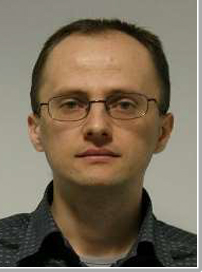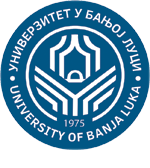XIV International Symposium on Industrial Electronics and Applications - INDEL 2022
9-11 November 2022, Banja Luka, Bosnia and Herzegovina
The Symposium is sponsored by IEEE Industry Applications Society, IEEE Power Electronics Society and IEEE Industrial Electronics Society.
Keynote Speakers
Recent Advances in the Field of Electric Power Quality

Prof. Dr. Vladimir Katić
University of Novi Sad
Faculty of Technical Sciences
Novi Sad, Serbia
Prof. VLADIMIR KATIĆ, Ph.D. is a Professor at the University of Novi Sad, the Faculty of Technical Sciences in Novi Sad, Serbia. He received a B.Sc. degree from the University of Novi Sad in 1978 and M.Sc. and Ph.D. degrees from the University of Belgrade in 1981 and 1991, respectively, all in Electrical Engineering.
He is the author or co-author of 22 scientific monographs, textbooks, and teaching materials (scripts). The most important are: “Power Electronics 1 – Components and AC/x converters” (2020), “Power Electronics 2 – DC/x converters and power supplies” (2020), “Power Quality – problems and laboratory exercises” (2018), “Renewable electrical energy sources – problems” (2018), “Real-Time Modeling of Power Electronics Converters” (2011), “Electric Power Quality” (2007), “Renewable Sources of Electrical Energy” (2007), “Microprocessor Applications in Power Engineering” (2006) and a Monograph "Electric Power Quality - Harmonics" (2002), all in Serbian.
He is the author or co-author of more than 600 scientific papers published in international and national journals or conference proceedings. His papers have been cited over 1100 times with h=14 (according to the Scopus), and over 2100 times, with h=20 (according to Google Scholar). He is an active reviewer with over 500 reviews recorded at the Publons. Prof. Katic has been the head, main researcher, or researcher in 14 international and around 50 national scientific projects or studies.
He is on the Editorial Boards of several scientific journals, a reviewer of many of the most prestigious journals, and a Member of Program or Steering Committees of more than 75 International Conferences around the World. He chaired numerous international and national conferences, among which the International Conference EPE-PEMC 2012 ECCE Europe and the biannual International Symposium on Power Electronics (Ee) are the most known.
Prof. Katić is a Senior Member of the IEEE (USA). He is also the Founder and the President of the Power Electronics Society of Serbia (Novi Sad, Serbia), a Member of the Executive Council of the European Power Electronics Association (EPE, Brussels, Belgium), a Member of the Executive Council of the Power Electronics and Motion Control (PEMC, Budapest, Hungary), a President of the Society of ETRAN (Belgrade, Serbia), and a Founder and a Member of the Executive Board of the National Committee of CIRED (Novi Sad, Serbia).
The main fields of scientific and research interest of Prof. Katić are power quality, renewable energy sources, power electronics, and electric vehicles.
Abstract — The field of Electric Power Quality (PQ) is gaining the interest of many researchers from academia and industry. The main reasons behind this are the increased complexity of the power system, widespread usage of non-linear power converters, the addition of renewable energy sources and distributed generation, rise in electric vehicles and other means of electric transportation with high charging demand, and electrical storage capacities, etc. On the other hand, the digitalization of the power system is increasing and applied advanced computer systems, microprocessor-based devices, and digital control systems are very sensitive to PQ disturbances. There are different types of PQ disturbances, but voltage distortions and disturbances, like harmonics, sags/swells, flicker, interruptions, etc., are the most interesting ones. Each type of PQ disturbance is characterized by a specific signal signature (feature), which needs to be adequately detected, classified, characterized, and recognized as a possible threat (or not) to normal operation. Modern methods of the PQ signals treatment are based on traditional Nyquist methods and different analysis approaches are available. Usually, the voltage is defined by tracking its r.m.s. value with different methods of its calculation. But, digital signatures of the PQ disturbances may be analyzed with advanced digital signal processing methods, like parametric, nonparametric, and hybrid ones. Recently, compressive sensing methods have been introduced for signal digital treatment and transmission, while for the disturbances classification, characterization, and possible localization artificial intelligence, through machine learning was applied.
The lecture is intended to present an overview of different PQ signals analysis methods and their application in the characterization of PQ events. Special focus will be given to harmonics, as they may be a source of possible resonance in the network, and advanced voltage sags/swells detection and characterization methods, as they may have serious implications on power electronics converters operations, i.e., on RES generation, industrial drives and other loads operation and reliability. The methods using harmonic footprint and deep-learning algorithms will be presented in more detail.
Integrated Circuit Reliability: Current State, Challenges and Solutions

Prof. Dr. Vazgen Melikyan
Director of Synopsys Armenia Educational Department
Head of Chair at National Polytechnic University of Armenia
Yerevan, Armenia
Vazgen joined Synopsys in 2004 as Director of the Synopsys Armenia Educational Department (SAED). He is responsible for deploying the Synopsys University Program and overseeing cooperation with universities in Armenia and the surrounding region. In his role, Vazgen leads all components of the educational process in partner universities including curricula development, implementation of industry projects, internships, and training. Vazgen is also the Head of “Microelectronic Circuit and Systems” Chairs in four partner universities.
Vazgen is the author of 12 monographs; more than 300 scientific and 135 methodological publications; more than 130 courses; and more than 170 reports. 65 Ph.D. dissertations have been defended under Vazgen’s supervision. He contributes at several international and local scientific conferences and contests serving as President, Executive Secretary, Member of Program Committees, and Head of Sessions.
Vazgen has received various awards including the title of Honorable Scientist of the Republic of Armenia, “President of the Republic Prize” in “Technical Sciences and Information Technologies,” and “Best Paper” awards at international conferences. He is an Honorable Professor of several universities including National Research University MIET and European University.
Vazgen holds a B.S. from Yerevan Polytechnic Institute and a Ph.D. from Moscow Engineering-Physics Institute. He is a Sc.D. and Professor at National Polytechnic University of Armenia, and a Corresponding Member of the National Academy of Sciences of Armenia.
Abstract — At present integrated circuit (IC) development is related to a number of challenges, including power consumption, performance, etc. The most important one among them is IC reliability. The fact of becoming vital is conditioned by a number of famous physical phenomena, becoming crucial. Such phenomena are aging, signal integrity, power integrity, self-heating, protection from electrostatic discharge and latchup, radiation effects, process variability, metastability, etc. The mentioned phenomena have always had impact on IC functioning and its main parameters. However, due to IC scaling, their role has become crucial. As a result of IC scaling on one hand, the impact of the mentioned phenomena on ICs has constantly increased. On the other hand, during time IC is becoming more sensitive towards those impacts. All this creates huge difficulties during IC design. The lecture is intended to present what challenges each mentioned phenomena creates for an IC designer, what is the real situation now WRT each phenomena and what solutions are there that will allow to reduce the impact of those phenomena to an extent that IC reliability is at a necessary level.
Wireless Inductive-Charging of Electric-Vehicles is Coming

Darko Đ. Vračar received the Dipl.-Ing. and Magister degrees in electrical engineering from the School of Electrical Engineering, University of Belgrade, Belgrade, Serbia, in 2000 and 2007, respectively, where he is currently pursuing the Ph.D. degree. His major field of study was power converters and drives.
He is also a Senior Staff Engineer with BRUSA Elektronik (München) GmbH, Munich, Germany. He has 21 years of industrial experience. Areas of expertise are implementation of telecom and datacenter power supplies, and research and development of power electronics’ systems, such as solar inverters, SMPS for industrial, automotive, and telecom applications. He has published several papers related to power converters and drives and holds one patent in power conversion systems. His research interests include simulation, control, and design of power converters. In addition, he was delivering training sessions related to power electronics’ topics or industrial standards.
Mr. Vračar is a member of the following IEEE Societies: Industry Applications, Industrial Electronics, Circuits and Systems and Power Electronics. He is a Reviewer of journal Electronics.
Abstract — The increased popularity of battery electric-vehicles (BEV) in recent years moved focus of the research and development activities towards future technologies for the charging-infrastructure. The wireless inductive-charging of BEV’s batteries is convenient, robust, efficient, and a reliable emerging charging-method.
The lecture will start with a short introduction of Brusa Elektronik AG—a pioneer in emobility. Brusa is the first company worldwide which launched an inductive-charging system (ICS) for BEV certified per IEC 61980 in 2018 together with BMW. Current status of the charging infrastructure, future system needs, and trends will be briefly covered. One will see that the wish for wireless ICS actually comes from the BEV drivers who are fed-up with handling of the charging cables. The ICS fulfills the need for automated charging-systems and is prepared for future applications like semidynamic charging.
After that performance of Brusa 2nd generation ICS (11 kW) and comparison to the 1st generation (3.6 kW) ICS will be addressed. Both the vehicle and the infrastructure units will be covered. Besides power electronics, the ancillary functions such as foreignobject detection (FOD), living-object protection (LOP), and positioning (POS) will be briefly discussed.
The lecture will be closed will overview of upcoming ICS improvements and challenges including efforts in standardization. At the end short video will be played showing how automatic wireless inductive-charging works in reality thus demonstrating its performance and potential.
















